Shows

DNP DecodedAntibiotic Stewardship Guide: Cephalosporin Generations, ESBLs, and Fluoroquinolone SafetyTrace the critical evolution of the "chemical arms race" between modern medicine and bacterial resistance, starting from the discovery of Cephalosporium acremonium in a sewage outlet to the engineering of fifth-generation cephalosporins. This episode deconstructs the structural genius of the beta-lactam ring and provides a strategic framework for selecting the right weapon against high-stakes pathogens like MRSA and Pseudomonas aeruginosa.Key TakeawaysThe Structural Core: Understanding how the beta-lactam ring targets penicillin-binding proteins (PBPs) to inhibit cell wall synthesis—and how bacteria counter-attack via beta-lactamase enzymes.Cephalosporin Generations: A clinical breakdown of the spectru...
2026-02-0836 min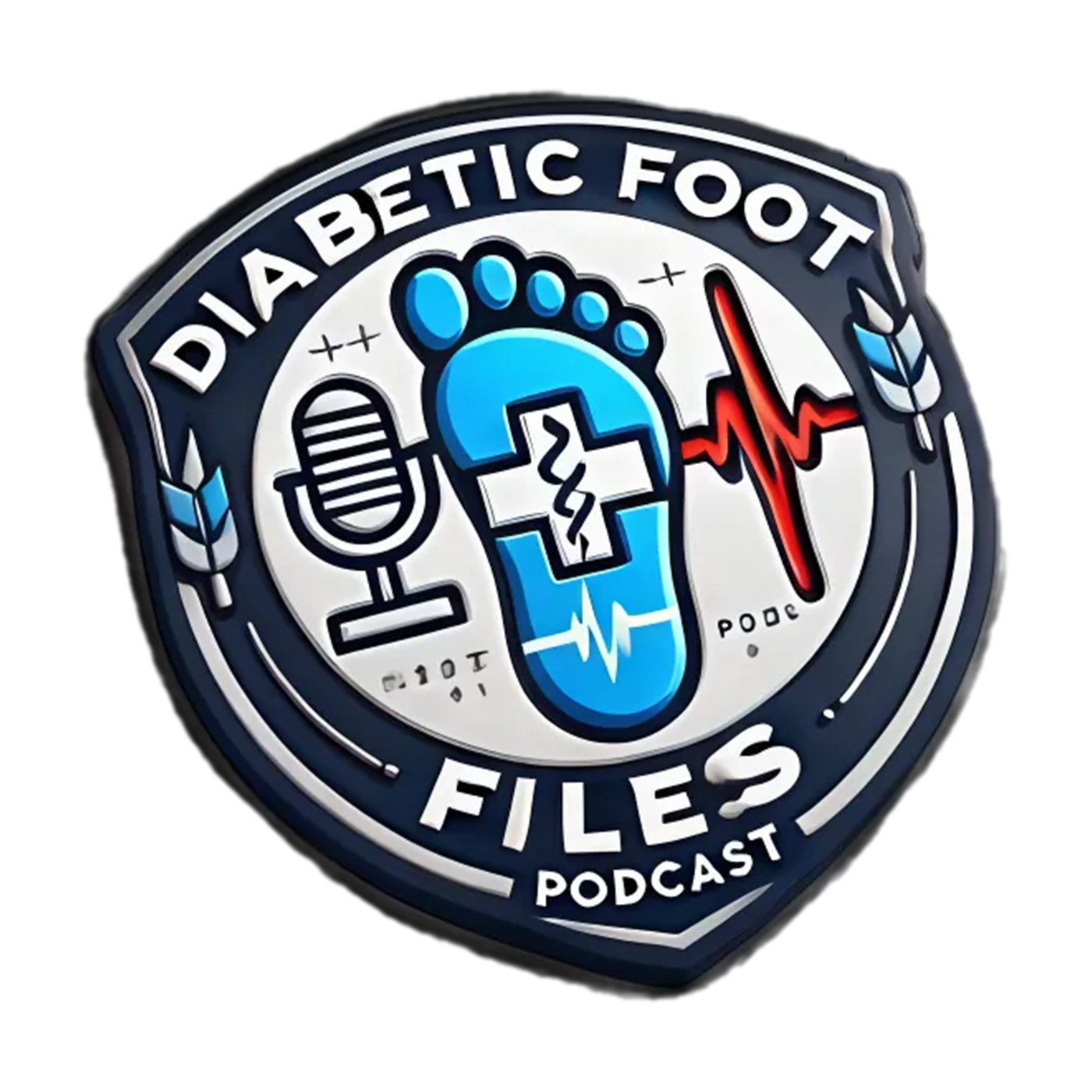
Diabetic Foot FilesKlebsiella in the Wound: The Capsule Cancer Threat to Diabetic FeetThis episode of Diabetic Foot Files focuses on Klebsiella pneumoniae as an emerging and dangerous pathogen in diabetic foot ulcers, highlighting its capsule, biofilm formation, and rising antimicrobial resistance.
It covers clinical presentation, the importance of deep tissue cultures, diagnostic tips, and a three-pronged treatment approach: source control (debridement), mechanical offloading, and targeted antimicrobial therapy with infectious disease involvement for ESBL or carbapenem-resistant strains.
The episode also reviews prevention strategies, the role of vascular assessment, and current research directions including anti-biofilm approaches and adjunctive therapies.
2025-12-2228 min
WaldesruhUnsichtbare Gefahren – Antibiotika-Resistenzen und Keime im Supermarkt-Fleisch (Folge 04)Ich begrüße Sie zu einer sehr ernsten Episode. Wir sprechen über das, was Sie auf dem Etikett im Supermarkt nicht sehen: Multiresistente Keime. Durch den massiven Einsatz von Antibiotika in der Tiermast – oft auch an gesunde Tiere im Rahmen der sogenannten Metaphylaxe – züchten wir gefährliche Erreger wie MRSA und ESBL heran.
Wir analysieren, warum gerade Puten- und Hähnchenfleisch, das oft als gesunde, magere Alternative gilt, häufig mit diesen Keimen belastet ist. Zudem thematisieren wir die Gefahr durch Campylobacter und Salmonellen und warum die industrielle "Tierproduktion" der ideale Nährboden für die nächste Gesundheitskrise ist.Produktemp...
2025-12-2114 min
The Watchlist: The Story Behind the StockEshbal’s U.S. Roll-Up Strategy | Eshbal Functional Food (TSXV: ESBL) | Capital CompassIn this episode of Capital Compass, Eshbal Functional Food (TSXV: ESBL) outlines its bold strategy to scale across North America through targeted acquisitions and key distribution partnerships. Listeners will hear CEO Tomer Bar-Meir discuss the company’s definitive agreement to acquire Dare to Be Different Foods, its new partnership with Active Marketing Group, and how these moves strengthen its position in the fast-growing “better-for-you” food sector.This episode covers:• Why the Dare to Be Different acquisition accelerates U.S. entry• How Active Marketing Group expands retail access• Innovation in gluten-free and functional f...
2025-12-0408 min
InfectoCast#163 - Diretriz Brasileira de BGN Multirresistente - Parte 1No episódio dessa semana, Klinger e Lino discutem a Diretriz Brasileira de Bacilo Gram-Negativo Multirresistente, em especial o tratamento de Enterobactérias produtoras de ampC, ESBL, KPC e NDM.Dê o play e embarque na primeira parte da Diretriz mais aguardada pelos Infectologistas!Clique no link e garanta já seu ingresso para o InfectoXpert:https://infectoxpert.infectocast.com.br/
2025-10-2441 min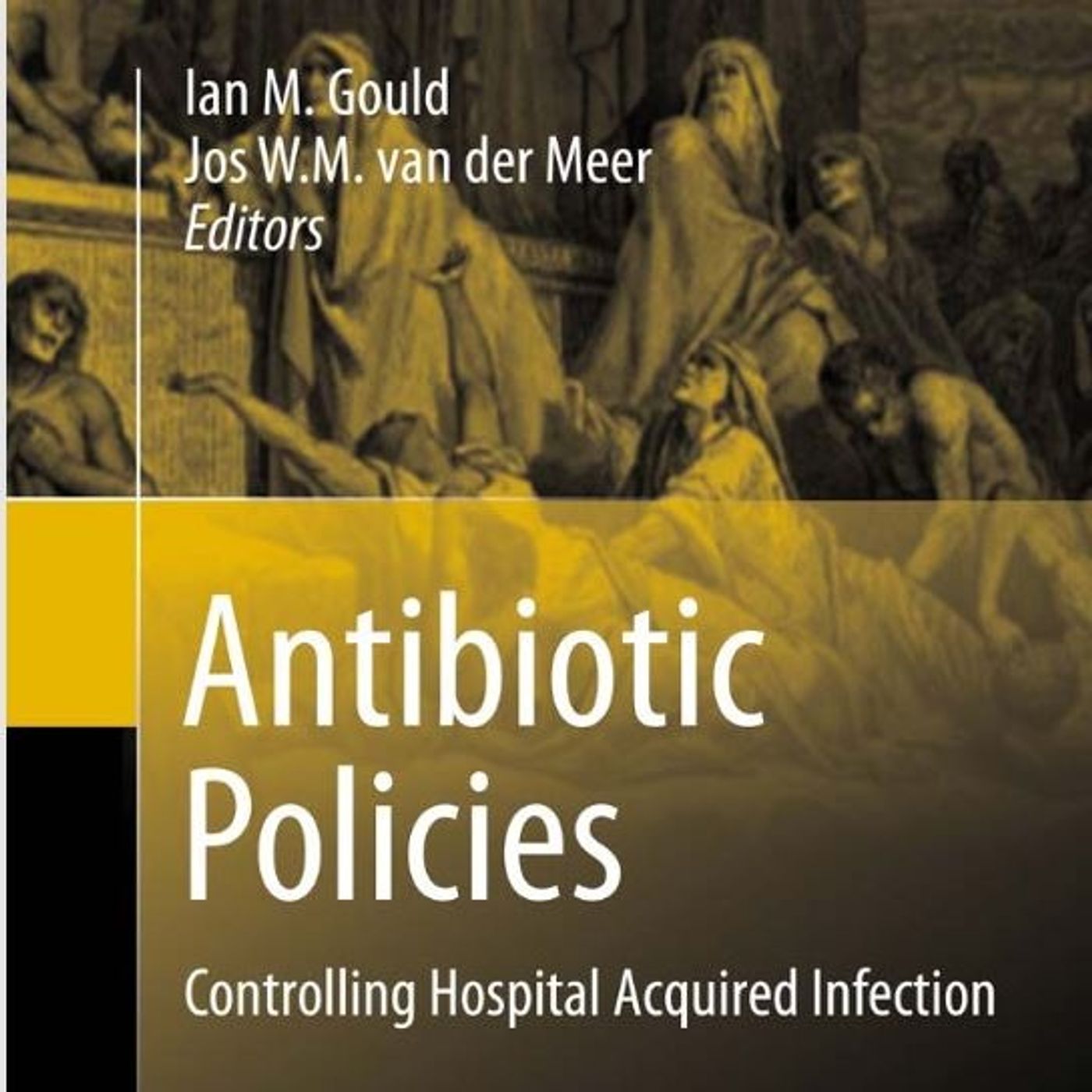
Pharmacy Made SimpleAntibiotic Policies: Controlling Hospital Acquired InfectionAn extensive overview of antibiotic policies and strategies for controlling healthcare-associated infections (HAIs), particularly those caused by multi-drug resistant organisms. They establish that HAIs and antimicrobial resistance are a significant, increasing global problem, with prevalence rates higher in developing nations. The text emphasizes that combating resistance requires a two-pronged approach: rigorous infection control measures, such as hand hygiene and isolation, and effective antimicrobial stewardship programs to promote prudent and responsible antibiotic prescribing. Specific chapters discuss the control of major resistant pathogens, including MRSA, VRE, ESBL-producing bacteria, and Carbapenem-Resistant Enterobacteriaceae (CRE). Furthermore, the sources critically analyze the challenges of implementing...
2025-10-2216 min
くつ王レディオレビュー:スーパーバグ「保菌」から「感染」へ:5人に1人、リスクは16倍?多剤耐性菌の真の脅威を徹底解明Infection Risk Associated With Colonization by Multidrug-Resistant Gram-Negative Bacteria: An Umbrella Review and Meta-analysisCitationOpen Forum Infect Dis. 2025 Jul;12(7):ofaf365. doi: 10.1093/ofid/ofaf365.概要本研究は、多剤耐性グラム陰性菌(MDR-GNB)の定着が感染発症に至るリスクを評価するため、システマティックレビューおよびメタアナリシスを対象としたアンブレラレビューである。対象は、ESBL産生腸内細菌科菌種(ESBL-E)、カルバペネム耐性腸内細菌科菌種(CRE)、多剤耐性緑膿菌(MDR-PsA)、カルバペネム耐性アシネトバクター(CRAB)に関するレビューである。847件の文献から17件が選定され解析された。その結果、ESBL-EおよびCRE定着後の感染発症率はいずれも22%であった。固形臓器移植患者やICU入院患者では、非定着例と比較して感染リスクが著明に上昇し、血流感染に限定しても高い発症率が示された。一方、CRABやMDR-PsAに関するデータは限られていた。死亡リスクに関しては、ESBL-E定着または感染で死亡率が上昇し、CRE定着ではさらに高い死亡率増加が認められた。感染進展に寄与する因子として、抗菌薬使用歴、ICU滞在、悪性腫瘍や肝疾患などの基礎疾患、免疫不全、侵襲的デバイス使用、多部位定着などが挙げられた。結論として、MDR-GNB定着患者のおよそ5人に1人が感染へ進展することが明らかとなり、これは新規デコロナイゼーション戦略の臨床試験設計や感染制御策に重要な基盤データを提供するものである。
2025-10-2112 min
Hospital Medicine UnpluggedAscending Cholangitis Emergency in Hospitalized Patients: The Core Triad Roadmap to Biliary Decompression and Why Every Hour CountsIn this episode of Hospital Medicine Unplugged, we cut through ascending cholangitis—recognize fast, resuscitate early, hit bugs hard, drain the duct.
We open with the do-firsts: aggressive IV fluids, hemodynamic stabilization, early broad-spectrum antibiotics, and urgent source control planning. Loop in GI/advanced endoscopy, interventional radiology, surgery, and ICU from the start.
How to call it—diagnosis without delay: fever, RUQ pain, jaundice (Charcot’s triad) when present, plus labs of infection + cholestasis and imaging (US first; CT or MRCP if equivocal) showing ductal dilation/obstruction. Remember: the triad is insensitive—don’t wait for all th...
2025-10-0940 min
くつ王レディオ尿路感染症治療に革命?新経口薬テビペネムは点滴薬に匹敵するか〜耐性菌との戦いの最前線〜 NEJMOral Tebipenem Pivoxil Hydrobromide in Complicated Urinary Tract InfectionCitationNew England Journal of Medicine, 2022; 386:1327–1338概要国際多施設二重盲検・二重ダミー非劣性試験(ADAPT-PO試験)において、複雑性尿路感染症(cUTI)または急性腎盂腎炎(AP)患者を対象に、経口カルバペネム系抗菌薬テビペネム ピボキシル ハイドロブロマイド(600mg 8時間毎)と静注エルタペネム(1g 24時間毎)の有効性・安全性を比較。対象は入院中成人1,372例で、そのうち868例が微生物学的ITT集団に組み入れられた。治療期間は7〜10日間(菌血症例は最大14日間)。主要評価項目(Day19±2の治癒判定時の総合奏効率:臨床的治癒+微生物学的陰性化)テビペネム群:58.8%(264/449)エルタペネム群:61.6%(258/419)群間差 −3.3%(95%CI −9.7〜3.2)で非劣性を達成。副次評価項目臨床的治癒率:93.1% vs 93.6%(差 −0.6%)End-of-treatmentでの総合奏効率:97.3% vs 94.5%菌血症例やESBL産生菌感染例を含む全サブグループで非劣性を維持。微生物学的陰性化率は両群で同等、治療後の菌持続例の多くは無症候性細菌尿であった。安全性有害事象発生率:25.7% vs 25.6%、主に軽度の下痢、頭痛、悪心。薬剤関連有害事象はテビペネム群9.3%、エルタペネム群6.1%。C. difficile感染はエルタペネム群3例、テビペネム群0例。治療中止に至る有害事象はテビペネム群0.1%、エルタペネム群1.2%。結論経口テビペネムは、複雑性尿路感染症および急性腎盂腎炎において、静注エルタペネムに対し非劣性かつ類似の安全性を示した。特にESBL産生菌やFQ耐性菌など耐性菌感染例に対する有効な経口治療選択肢となりうる。
2025-10-0809 min
Hospital Medicine UnpluggedFebrile Neutropenia in the Hospitalized Patient: The Critical Golden Hour, Risk Triage, and Antibiotic Stewardship for the HospitalistIn this episode of Hospital Medicine Unplugged, we sprint through febrile neutropenia (FN)—antibiotics within 1 hour, risk-stratify smartly, de-escalate responsibly, and don’t miss invasive fungi.
We open with the do-firsts: rapid triage + focused exam (subtle signs count), two sets of blood cultures (peripheral + each central-line lumen), CBC with differential, renal/hepatic panels, early chest imaging if any respiratory hint, and targeted swabs/cultures per symptoms & season. Start empiric therapy before workup is complete.
Why FN is dangerous: risk climbs with ANC 4–7 days of fever with ongoing neutropenia: add empiric/pre-emptive antifungal—think mold-active azoles or echin...
2025-10-0625 min
くつ王レディオ腎盂腎炎治療の盲点?古くて新しいアミノグリコシド系の再評価と耐性菌への可能性 J Antimicrob ChemotherEffectiveness and safety of an institutional aminoglycoside-based regimen as empirical treatment of patients with pyelonephritisCitationJournal of Antimicrobial Chemotherapy, 2020; 75(8): 2307–2313概要イスラエル・テルアビブの三次医療機関において、2016年に腎盂腎炎入院患者の初期治療としてアミノグリコシド系抗菌薬を第一選択とする院内ガイドラインを導入し、その後の臨床成績を後方視的に検証した。2017年1月〜2019年4月に入院し、培養陽性で腎盂腎炎と診断された成人2,026例が対象。715例がアミノグリコシド(ゲンタマイシンまたはアミカシン)を、1,311例が非アミノグリコシド薬(セフトリアキソン、ピペラシリン/タゾバクタム、カルバペネム、フルオロキノロンなど)を初期治療として受けた。有効性アミノグリコシド群は初期薬剤が分離菌に対してin vitro活性を有する割合が高かった(91.4% vs 80.0%)。30日全死亡率はアミノグリコシド群7.6%、非アミノグリコシド群11.0%で、傾向スコア調整後も有意に低かった(HR 0.78, p=0.013)。全ての事前規定サブグループで同等または優越性を示し、特にゲンタマイシン使用例やeGFR<50 mL/min群で有意な死亡率低下を認めた。入院期間は短縮(中央値5日 vs 6日)、90日以内の再入院率も低下。安全性急性腎障害の発生率は両群で差がなかった(2.5% vs 2.9%)。C. difficile感染率も同等(約1%)。結論アミノグリコシドを初期経験的治療として用いる施設プロトコルは、腎盂腎炎患者においてin vitro活性の向上と30日死亡率の低下に関連し、腎毒性の増加は認めなかった。特にESBL産生菌が多い環境では、カルバペネム節約の有力な選択肢となり得る。
2025-09-3009 min
くつ王レディオMERINO試験再検証:抗菌薬感受性検査の「罠」と耐性遺伝子が招く治療格差〜ピペラシリン_タゾバクタム_vs_メロペネムの真実〜 CIDAssociation Between Minimum Inhibitory Concentration, Beta-lactamase Genes, and Mortality for Patients Treated With Piperacillin/Tazobactam or Meropenem From the MERINO StudyCitationClinical Infectious Diseases, 2021; 73(11): e3842–e3850概要MERINO試験は、セフトリアキソン非感受性Escherichia coliまたはKlebsiella pneumoniae菌血症に対し、ピペラシリン/タゾバクタム(PTZ)とメロペネム(MER)を比較したRCTで、PTZ群の30日死亡率が高かった。本研究はその事後解析として、MIC測定(ブロス微量希釈法)と全ゲノム解析によるβ-ラクタマーゼ遺伝子同定を行い、MICや耐性遺伝子と死亡率の関連を検討した。主な結果解析対象は320株(E. coli 278株、K. pneumoniae 42株)。PTZ感受性は94%、MER感受性は100%(EUCAST基準)。PTZ MIC >16 mg/Lは30日死亡と強く関連(調整オッズ比14.9, 95%CI 2.8–87.2)。MERではMICと死亡率の有意な関連はなし。PTZ非感受性株を除外すると、30日死亡率差は縮小(原解析での差9%→MIC>16除外後は5%)。ESBL+OXA-1遺伝子共保有株はPTZ MICが高く、PTZ群での死亡率差が最大(絶対リスク差14%)。自動化感受性試験(Vitek 2やディスク拡散)と基準法(BMD)の一致率は低く、特にPTZで偽感受性判定が多かった。結論PTZ MIC >16 mg/Lは死亡リスク上昇と関連し、特にESBL+OXA共保有株で顕著であった。現状の臨床検査室でのPTZ感受性試験には精度上の問題があり、セフトリアキソン非感受性菌血症の治療ではMERがより安全な選択肢と考えられる。
2025-09-2807 min
Hospital Medicine UnpluggedPyelonephritis in the Hospitalized Patient: Mastering Evidence-Based Management, Antibiotic Stewardship, and the IV-to-Oral ShiftIn this episode of Hospital Medicine Unplugged, we get practical about inpatient pyelonephritis—how to stop sepsis, protect kidneys, and prevent complications.
We open at the door: recognize sepsis, two IV lines + fluids, draw urine and blood cultures (don’t delay antibiotics for tough sticks), check creatinine and lactate, and assess for obstruction/retention.
Then hit bugs fast—empiric IV antibiotics tailored to local resistance and risk of MDR:
• Ceftriaxone (many hospitalized patients) or cefepime.
• Piperacillin–tazobactam if healthcare exposure or Pseudomonas risk.
• Carbapenem (ertapenem/meropenem) if ESBL risk or prior colonization.
• Aminogly...
2025-09-2430 min
くつ王レディオガイドライン:複雑な耐性菌対策 接触予防策の中止基準 MRSA, VRE, MDR-E, CD ICHE元の論文:Duration of Contact Precautions for Acute-Care SettingsCitation:Infect Control Hosp Epidemiol. 2018;39(2):127–144論文の要約このSHEAエキスパートガイダンスは、急性期病院で使用される接触予防策(Contact Precautions, CP)を、いつ中止すべきかについて整理しています。対象はMRSA、VRE、多剤耐性腸内細菌科細菌(MDR-E)、およびC. difficileです。◯ MRSA1〜3回の陰性培養でCP中止を検討できますが、慢性創傷や長期療養施設の入院歴がある場合は延長が望まれます。多くの施設は3回連続陰性を基準にしています。◯ VRE1〜3回の陰性便または直腸スワブ培養で解除を検討。ただし免疫不全や抗菌薬使用中では再陽性化が多く、長期保持の可能性があるため延長が推奨される場合があります。◯ MDR-E(ESBL産生菌、CREなど)6か月以上の経過、2回以上の陰性直腸スワブで解除を考慮。ただし、カルバペネマーゼ産生菌など治療選択肢が限られる株では無期限でのCP継続が推奨されます。◯ C. difficile下痢消失後48時間はCPを継続。院内感染率が高い施設では入院中ずっとCPを続けることも検討されます。◯ 分子検査の役割PCRは感度が高いものの、コロナイゼーションと伝播リスクの関連を十分に説明できるエビデンスが不十分で、現時点では正式な推奨はされていません。◯ 結論接触予防策の中止は一律でなく、施設の疫学やリソース、患者背景に応じて柔軟に運用する必要があります。今後は分子検査や大規模研究によるエビデンス強化が課題です。接触予防策, MRSA, VRE, 多剤耐性菌, Cディフィシル,
2025-09-1421 min
Die Blase für FortgeschritteneWenn Antibiotika versagen: Können Phagen uns retten?Phagentherapie gegen Harnwegsinfekte
Antibiotikaresistente Keime gehören zu den größten medizinischen Herausforderungen unserer Zeit. Besonders ESBL-bildende E. coli machen Ärztinnen und Ärzten zu schaffen: Sie produzieren Enzyme, die gängige Antibiotika wirkungslos machen – und verwandeln so selbst harmlose Blasenentzündungen in potenziell lebensbedrohliche Infektionen. Doch es gibt Hoffnung: die Phagentherapie. Dabei kommen Viren zum Einsatz, die gezielt Bakterien angreifen und zerstören.
Studien:
Fallbeispiel
Warum wir Phagen brauchen
Beyond antibiotic therapy
Websites:
Phage4Cure Projekt
Phage Germany
Bundesinstitut für Risikobewertung
Phagoflow
Videos:
Arte Doku
Doku über Georgien
Du möchtest deine...
2025-09-0523 min
Sensible y ResistenteControl brotes: cuando todo se descontrolaEn este capítulo repasaremos de la mano de la Dra. López-Cerero conceptos clave en los microorganismos multirresistentes: sus características genómicas, qué es un clon y qué supone la entrada de la tecnología de secuenciación masiva en nuestros laboratorios y cómo maximizar su potencial. Comentaremos también los trabajos que están realizando valorando los multirresistentes en ambientes como aguas residuales. Además, hablamos sobre el posible futuro de la Inteligencia Artificial aplicada a este campo.Bibliografía:- Quantitative study of ESBL and carbapenemase producers in wastewater treatment plants in Sev...
2025-08-2046 min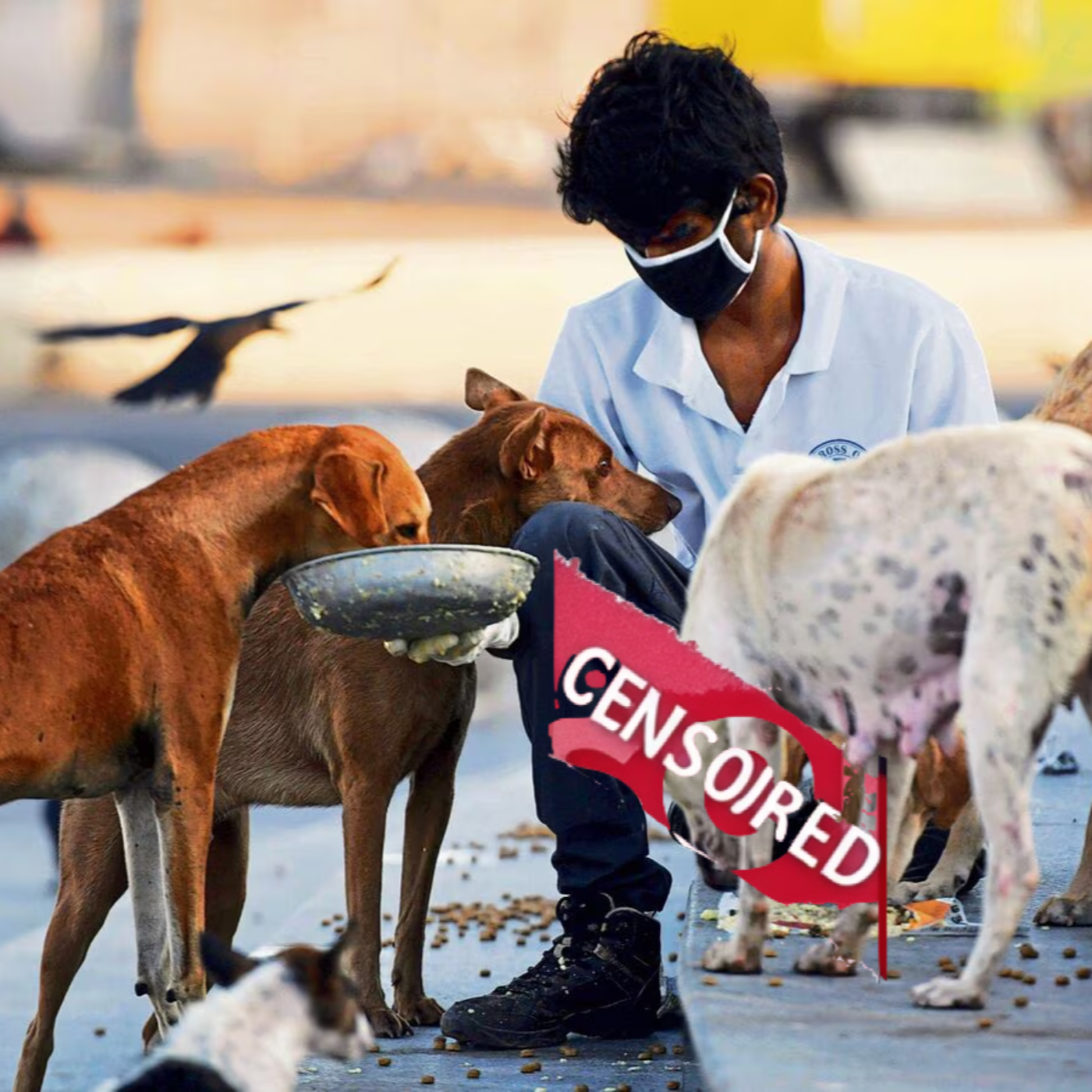
Fear Is the First Infection that Spread and Kill, and Not the Virus during Post-Antibiotic Era.The Silent Threat: Crossing the Species Barrier: Is Dog-Borne Infections Driving India’s Next Pandemic?The Silent Threat: How Stray Dogs Accelerate Antimicrobial Resistance, Posing a Grave Global Health CrisisAntimicrobial resistance (AMR) stands as an urgent global health and socioeconomic crisis, threatening to reverse many of the gains made in modern medicine. This phenomenon occurs when microorganisms like bacteria, parasites, viruses, or fungi develop the ability to survive in the presence of antimicrobials, rendering common treatments ineffective. While AMR is a complex problem driven by the misuse and overuse of antimicrobials across various sectors, including human medicine, agriculture, and livestock, emerging evidence points to stray animal populations, particularly dogs, as significant...
2025-08-1316 min
くつ王レディオ日本におけるパーソナライズドファージ療法導入に向けた実現可能性調査 Journal of Infection and ChemotherapyA feasibility study for personalized phage therapy against drug-resistant bacteria in JapanCitationJournal of Infection and Chemotherapy, 31 (2025): 102770論文の要約本研究は、日本国内でパーソナライズドファージ療法(個別化ファージ療法)の導入可能性を評価することを目的とした観察研究であり、2023年8月から2024年9月にかけて多剤耐性菌感染症の患者を対象に実施された。対象患者:30例(うちMRSA 10例、CRPA 5例、NTM 6例を含む)。感染部位は呼吸器感染が最多(43.3%)、次いで骨・関節感染および皮膚・軟部組織感染(各20%)。ファージの準備成功率:30株中26株(86.7%)に対して、有効なファージ(10⁸ PFU/mL以上)が環境またはファージライブラリーから準備可能であった。CRPAに対しては環境由来からの分離が容易で、MRSAやNTMに対しては既存ライブラリーが有効だった。死亡率と背景:全体の30日死亡率は20%、観察期間中の死亡率は36.7%であり、特にCRPAやS. maltophilia、ESBL産生菌における死亡率が高かった。NTMでは死亡例は見られなかった。ファージ精製と品質評価:代表的なCRPA株に対するファージ(PSM11-4m4)は、精製後のエンドトキシン含有量が臨床使用可能な基準を満たし、臨床応用に向けた品質要件も確認された。今後の課題:非GMP下での迅速なファージ製造、エンドトキシン除去の最適化、ファージライブラリーの拡充、感染症専門医を中心とした多職種による適応判断体制の構築が求められる。本研究は、日本でのパーソナライズドファージ療法の臨床導入に向けた初の実証的検討であり、将来的な臨床試験設計と制度構築に貴重な基礎データを提供している。
2025-08-0307 min
Meet Minerva, The POET and MicrobiologistIn the Microbiology Lab
I am standing very stillNo noise here …But, I began to cryAt the sounds of the microbesI thought, I heardNot wanted to dieI experienced the death of an E.coliSubscribe with your favorite podcast playerApple PodcastsAndroidRSS
Melting fast, not wanting to dieI experienced the death of an E.coliShrinking, unpigmented, and so,Its colors just went by …Awake from your silly sleep old E.coli
Today, is not your dayT...
2025-07-2903 min
DR.HAPPY HUMAN PLUMBER 人體水電工🎙️EP261|超級細菌來襲:抗生素抗藥性(AMR)的全球危機與未來解方🎙️EP261|超級細菌來襲:抗生素抗藥性(AMR)的全球危機與未來解方⸻📌主題亮點:• 為何抗生素失效了?破解超級細菌背後的抗藥性機制• 為何藥廠不研發新抗生素?揭露產業與市場的結構困境• 新解方來了!噬菌體、CRISPR、疫苗與「同一健康」全球策略出場⸻🔍內容解析:本集重點:抗生素抗藥性(AMR)不再只是醫療議題,而是一場跨越人類、動物與環境的系統性挑戰。從院內感染到社區傳播,從個人處方濫用到農業抗生素使用,超級細菌正在改寫現代醫學的根基。🧫 抗藥性如何發生?了解「細菌進化」的速度與策略• 抗藥性基因的突變、轉移與選擇壓力• ESBL、CRE、MRSA、VRSA 等常見超級細菌• 藥效逐漸喪失,常見感染可能重回致命風險💊 為什麼新抗生素這麼難研發?• 成本高、療程短、利潤低 → 藥廠缺乏誘因• 市場失靈導致「抗生素研發管線」近乎停擺• 全球僅少數新抗生素獲批,且多為舊藥衍生🧬 未來出路:新療法、新策略與跨界合作• 噬菌體療法:病毒對付細菌的新興希望• CRISPR精準剷除抗藥基因• 預防大於治療:疫苗、減少不必要抗生素使用• One Health「同一健康」:從人、畜到環境的整合策略• WHO全球監測網、台灣CDC抗藥性監測報告與處方政策⸻📣負責任的行動:從不亂吃抗生素、不自行停藥開始,每個人都是抗藥性蔓延或控制的關鍵。這不只是醫療問題,而是全人類的共同責任。⸻📚熱門關鍵字:#抗生素抗藥性 #AMR #超級細菌 #噬菌體療法 #CRISPR #抗藥性監測 #OneHealth #抗生素研發危機 #全球健康威脅 #感染控制⸻🎤主講人資訊:Dr. Happy|心血管外科醫師、Podcast《DR.HAPPY HUMAN PLUMBER》主持人專注用簡單科學語言,拆解醫學冷知識,用溫暖觀點陪你一起面對健康難題。
2025-07-1309 min
USF Health’s IDPodcastsGram Negative Bacterial ResistanceDr. Becca Bruning, Infectious Diseases Pharmacy Specialist at the Moffitt Cancer and Research Institute in Tampa, FL, takes a deep dive into the subject of resistance mechanisms for specific gram negative bacteria. Dr. Bruning begins her talk by discussing the primary resistance mechanisms, including porin channels, efflux pumps, and other target sites. Extended spectrum beta-lactamases (ESBLs) are next covered, including typical bacterial species, identification techniques, ESBL testing, and the use of Piperacillin-tazobactam and carbapenems. Next, Dr. Bruning mentions AmpC-type resistance, and identifies the “HECKYES” bacteria. Pharmacokinetic and phamacdynamic considerations are explored, and specific antimicrobial agents are discussed. Lastly, Dr. Brun...
2025-01-0949 min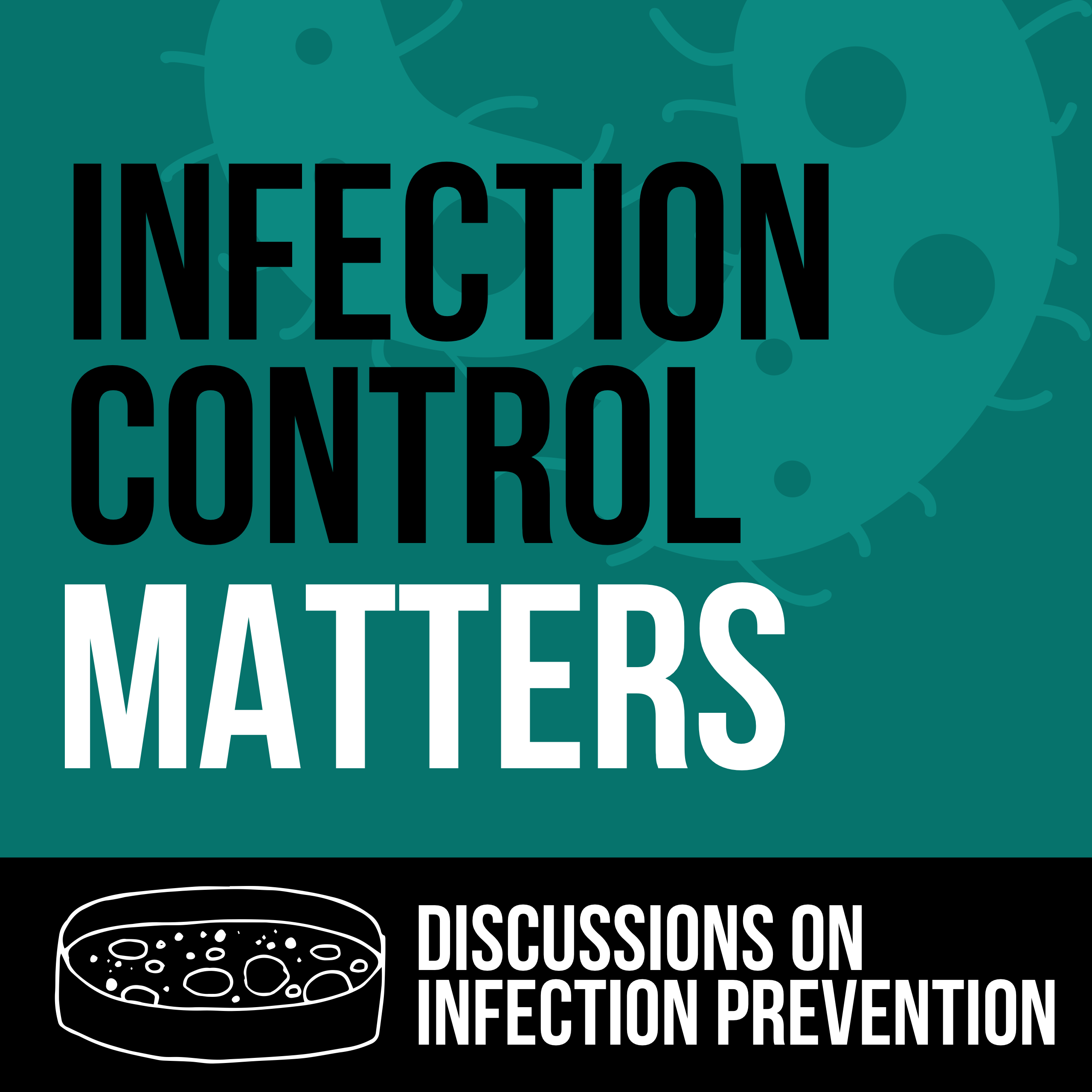
Infection Control MattersCould you have an ERCP-related outbreak? Sequencing to the rescue but you'll have to trash the scope!In this episode, Martin talks to Cansu Cimen, a researcher at University Hospitals Groningen in the Netherlands, about a recent paper that documents an outbreak and in particular the critical role of next-generation sequencing (NGS) in tracking and controlling the transmission of MDROs via contaminated duodenoscopes.
Focusing on an outbreak linked to ESBL-producing Citrobacter freundii and Klebsiella pneumoniae after endoscopic retrograde cholangiopancreatography (ERCP), standard culture methods failed to detect contamination. After many negative cultures using established methods, destructive dismantling of the implicated scope revealed contamination on hard-to-clean components, highlighting NGS as an effective tool for identifying pathogen...
2024-11-0821 min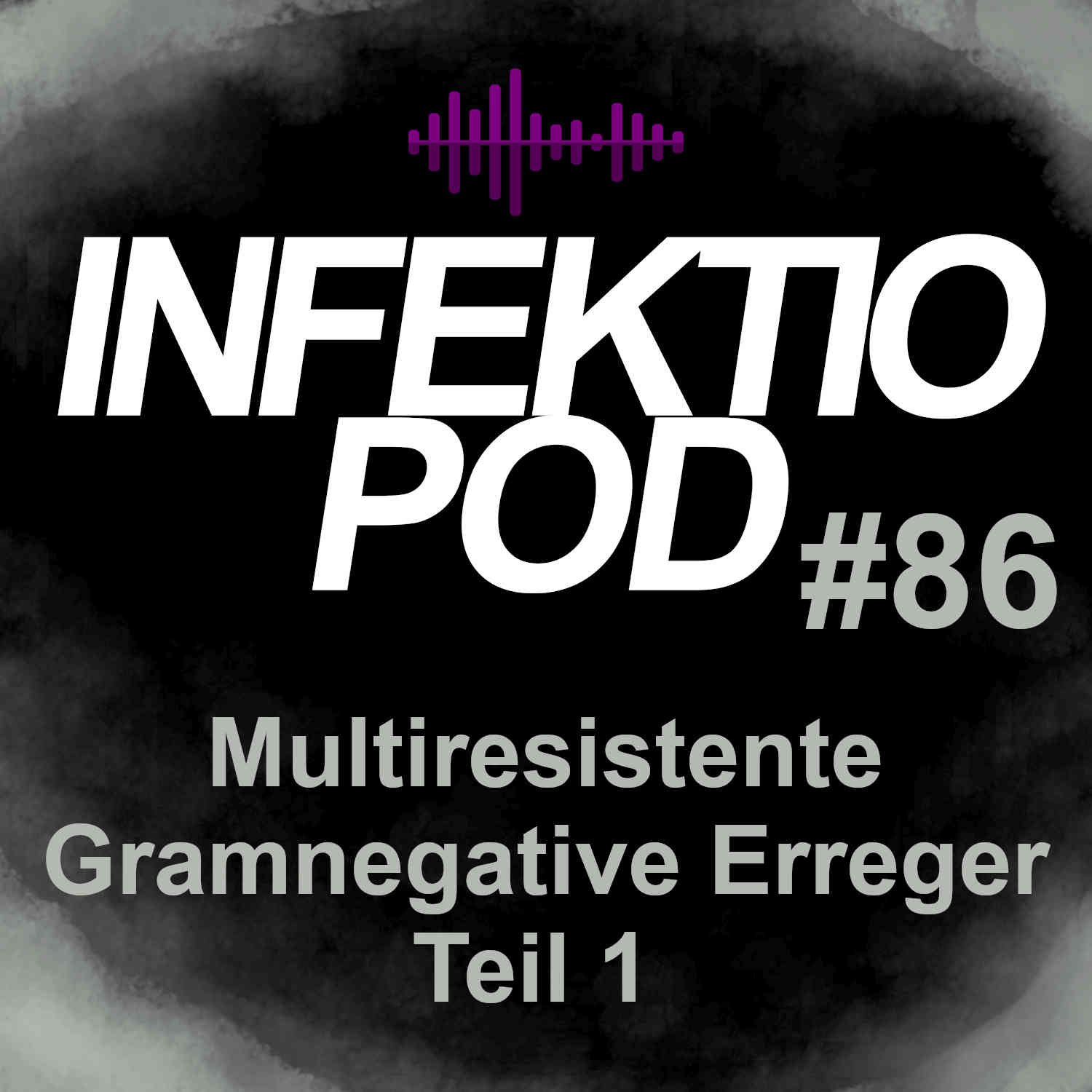
infektiopodInfektiopod 86: Multiresistente gramnegative Erreger – Teil 1In dieser Folgen wird es „nerdig“: Wir besprechen anhand der IDSA Guidance on the Treatment of Antimicrobial Resitant Gram-Negativ Infections die multiresistenten gramnegativen Erreger. In dieser Folge – Teil 1 dieses Themas- geht es um ESBL (extended-spectrum β-lactamases ), AmpC Betalaktamasen und CRE (Carbapenem-resistant Enterobacterales). Wir erklären die unterscheidlichen Resistenzmechanismen, diskutieren deren Folgen und Therapiemöglichkeiten. … „Infektiopod 86: Multiresistente gramnegative Erreger – Teil 1“ weiterlesen
2024-10-0137 min
infektiopodInfektiopod #86: Multiresistente gramnegative Erreger – Teil 1In dieser Folgen wird es "nerdig": Wir besprechen anhand der IDSA Guidance on the Treatment of Antimicrobial Resitant Gram-Negativ Infections die multiresistenten gramnegativen Erreger. In dieser Folge - Teil 1 dieses Themas- geht es um ESBL (extended-spectrum β-lactamases ), AmpC Betalaktamasen und CRE (Carbapenem-resistant Enterobacterales). Wir erklären die unterscheidlichen Resistenzmechanismen, diskutieren deren Folgen und Therapiemöglichkeiten.
Links:
IDSA Guidance on the Treatment of Antimicrobial Resistant Gram-Negativ Infections
2024-10-0137 min
Independent Insights, a Health Mart PodcastNew IDSA guidelines to treat drug resistant gram-negative bacteriaDrug resistance to antibiotics continues to escalate. This week we do a deep dive into the Infectious Disease Society of America's (IDSA) brand new guidance on the treatment of antimicrobial resistant gram-negative infections. The GameChangerThe new IDSA guidelines provide critical, evidence-based recommendations for managing drug-resistant gram-negative infections. The guidance offers health care providers clear strategies to improve outcomes and reduce the emergence of resistance.HostJen Moulton, BSPharmPresident, CEimpactGuests Geoff Wall, PharmD, BCPS, FCCP, BCGPProfessor of Pharmacy Practice, D...
2024-09-0238 min
CEimpact PodcastNew IDSA guidelines to treat drug resistant gram-negative bacteriaDrug resistance to antibiotics continues to escalate. This week we do a deep dive into the Infectious Disease Society of America's (IDSA) brand new guidance on the treatment of antimicrobial resistant gram-negative infections. The GameChangerThe new IDSA guidelines provide critical, evidence-based recommendations for managing drug-resistant gram-negative infections. The guidance offers health care providers clear strategies to improve outcomes and reduce the emergence of resistance.Guests Geoff Wall, PharmD, BCPS, FCCP, BCGPProfessor of Pharmacy Practice, Drake UniversityInternal Medicine/Critical Care, UnityPoint Health
2024-09-0238 min
This Week in MicrobiologyHow Pseudomonas Became A Global PathogenTWiM explores evolution and host adaptation of Pseudomonas infections of plants, and the impact of COVID-19 on ESBL-producing E. coli on urinary tract and blood infections. Hosts: Vincent Racaniello and Michael Schmidt. Become a patron of TWiM. Links for this episode Evolution and host adaptation of Pseudomonas (Science) Type III secretion system, infection by injection (Nat Comm) Demographic inference with skyline plots (Peer J) Skyline plots (Taming the Beast) Panaroo, a bacterial genome analysis pipeline (Wellcome Sanger Inst) Impact of COVID-19 on ESBL-producing E. coli infections (Antimicro Resist Inf Control) Take the...
2024-08-1058 min
Let's Talk Micro147: Research in Medical Laboratory Science: moose, bears, ESBL, and moreResearch in MLS? In this episode Grace Leu-Burke, director of the Medical Laboratory Sciences (MLS) program at the University of Alaska in Anchorage, returns to the podcast. She talks to Luis about the research program the MLS students are involved in. They culture scat from moose, bears, and geese, perform identification and susceptibility testing, and more. What kind of antimicrobial resistance is found in this sample population? Tune in to learn more about this research. Link to JAM meeting registration: https://www.labjam.org/event/cc75ef76-49db-4175-8440-d194382bcf05/websitePage:d132f4da-b01b-4...
2024-06-211h 15
The food ProcessorsGuest 43-Πεξαρά Ανδρεάνα : Μικροβιακή αντοχή και Τρόφιμα Ζωικής Προέλευσης: H προσέγγιση της «Ενιαίας Υγείας»Μα γιατί δεν με πιάνει το αντιβιοτικό?? Κόποτε ήταν πολύ εύκολο. Έπαιρνα αντιβίωση και σε 30 λεπτά ήμουν οκ. Πόσες φορές έχουμε ακούσει αυτό τον διάλογο ? Η μικροβιακή αντοχή (AMR) αποτελεί αντικείμενο παγκόσμιας ανησυχίας για τη δημόσια υγεία. Εάν δεν ληφθούν μέτρα, η AMR εκτιμάται να έχει ακόμη πιο σοβαρές επιπτώσεις για την υγεία παγκοσμίως. Οι ανησυχίες επιδεινώνονται από την έλλειψη ανακάλυψης νέων αντιβιοτικών. Η AMR θεωρείται ότι προκαλείται κυρίως από γονίδια ανθεκτικότητας στα αντιβιοτικά (ARGs). Τα γονίδια αυτά μεταφέρονται μεταξύ των ανθρώπων, των ζώων και του περιβάλλοντος, καταδεικνύοντας τη σημασία της προσέγγισης της «Ενιαίας Υγείας», ότι δηλαδή η υγεία του ανθρώπου είναι στενά συνδεδεμένη και εξαρτημένη από την υγεία
των ζώων και του περιβάλλοντος. Δεδομένου ότι η τροφική αλυσίδα συνδέει όλους
τους οργανισμούς με και στο περιβάλλον, η σχέση μεταξύ των τροφίμων και της AMR αποτελεί ζήτημα μείζονος ενδιαφέροντος. Τα ανθεκτικά στα αντιβιοτικά βακτήρια (AMRB) ή/και τα ARGs μπορεί να μολύνουν τα τρόφιμα σε οποιοδήποτε στάδιο, από την παραγωγή έως την τελική διάθεση στον καταναλωτή. Τα ζώα που
παράγουν τρόφιμα θεωρούνται σημαντικές δεξαμενές AMRB, συμπεριλαμβανομένων του ανθεκτικού
στην μεθικιλλίνη Staphylococcus aureus (MRSA), ανθεκτικών στα αντιβιοτικά Campylobacter spp., Enterobacteriaceae που παράγουν εκτεταμένου φάσματος-β λακταμάσες (ESBL), αλλά και ARGs (για παράδειγμα aphA,
sul1, sul2, mecA, ampC) που μεταφέρονται από την
εκτροφή στο τραπέζι, υπογραμμίζοντας τη σημασία των τροφίμων ζωικής προέλευσης
στο ζήτημα της AMR. Επίσης η μόλυνση που σχετίζεται με την κακή υγιεινή,
φαίνεται να αποτελεί βασικό παράγοντα για την μετάδοση της AMR κατά την επεξεργασία και τη μεταφορά των
τροφίμων. Η σημασία των τεχνολογιών συντήρησης και επεξεργασίας των τροφίμων,
παραδοσιακών (π.χ. ζύμωση) ή καινοτόμων (π.χ. μη θερμικές τεχνολογίες), για την AMR στα τρόφιμα βρίσκεται υπό έρευνα. Απαιτούνται παγκόσμιες διεπιστημονικές και ενοποιημένες προσεγγίσεις που βασίζονται στις αρχές της «Ενιαίας Υγείας» για τον περιορισμό της διάδοσης της AMR και την ευαισθητοποίηση και την εκπαίδευση
σχετικά με τη χρήση των αντιβιοτικών. Η AMR βρίσκεται στο επίκεντρο της στρατηγικής της Ευρωπαϊκής Ένωσης για την παγκόσμια υγεία, με τον σχεδιασμό και εφαρμογή προγραμμάτων
ελέγχου για τη χρήση των αντιβιοτικών και για την πρόληψη της διάδοσης των ARGs κατά μήκος της τροφικής αλυσίδας.
2024-06-1832 min
Infectious Disease PuscastInfectious Disease PuscastOn episode #42 of the Infectious Disease Puscast, Daniel and Sara review the infectious disease literature for the weeks of 11/09 – 11/21/23. Host: Daniel Griffin and Sara Dong Subscribe (free): Apple Podcasts, RSS, email Become a patron of Puscast! Links for this episode Progress toward measles elimination (CDC) Slaying the troll of transplantation (TID) Association between the neutrophil-to-lymphocyte ratio and adverse outcomes in children aged Pre-exposure prophylaxis use history in people with antiretroviral resistance at HIV diagnosis (CID) Impact of the 2019 FDA guidance for uncomplicated UTI on treatment response rates (OFID) CDC Guidelines for the pr...
2023-11-2836 min
Hjelp, jeg er sykepleier!#57 Smittevern og infeksjonssykepleie med: Smittevernsnerdene, del 2: Q&AVelkommen tilbake til podkast med Elin og Marthe bak instagramkontoen og hjemmesiden Smittevernsnerdene! I denne episoden besvares spørsmål fra publikum og dere lyttere har virkelig sendt inn gode og relevante spørsmål, som alltid! For hvordan skal man egentlig forholde seg til jobb og kollegaer i helsevesenet hvis man selv er helsepersonell med ESBL? Hva er de vanligste feilene som helsepersonell gjør når det kommer til smittevern og hvilken type smitte er “verst”? Dette er episode 2 av 2 med Smittevernsnerdene. Vask henda og kos dere med nok en lærerik episode! Den del gjerne begge episodene v...
2023-11-2135 min
PestpoddenAntibiotikaresistens del 1Synes du også resistens er vanskelig? Fatt mot og bli med oss i Pestpodden på en reise gjennom resistensen! I anledning Antibiotikauken 2023 har vi nemlig to spesialepisoder. I del èn får du en enkel intro til antimikrobiell resistens - mens i del to intervjuer vi en av verdens fremste eksperter og forskere på feltet; Adam Roberts. Gled deg!Referanser:1.Barlow M, Hall BG. Phylogenetic analysis shows that the OXA beta-lactamase genes have been on plasmids for millions of years. J Mol Evol. 2002;55(3):314-21.2.D'Costa VM, King CE, Kalan L, Morar M, Sung...
2023-11-1814 min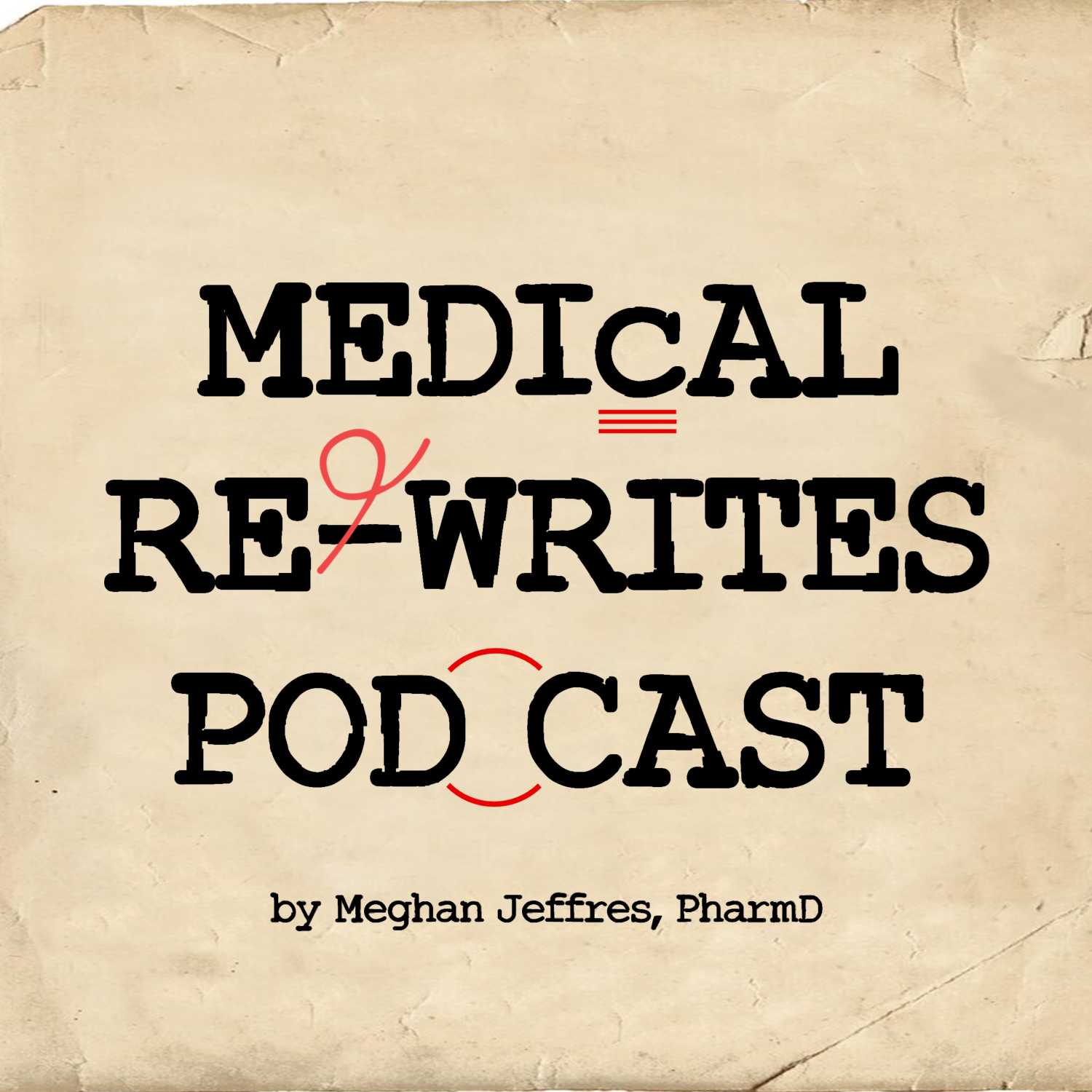
Medical RewritesBridesmaidsOur medical rewrite today will be for Bridesmaids. We have two deep dives today, tattoo infections and foodborne diarrhea. Please note that this podcast contains both plot spoilers and descriptions of infectious diseases found in the movie Bridesmaids.Movie suggestion form: https://tinyurl.com/8pa8sveyReferences2012 investigation of tattoo infections in Rochester New York: https://pubmed.ncbi.nlm.nih.gov/22913660/ 2019 investigation of tattoo infections in Miami: https://pubmed.ncbi.nlm.nih.gov/30452604/ Systematic review of tattoo infection pathogens: https://pubmed.ncbi.nlm.nih.gov/27788747/
2023-08-2547 min
FebrilePièce de (Gram-negative) Resistance, Part 2: CREWelcome to Part 2 of this pair of episodes on management of antimicrobial resistant Gram-negative infections!! Drs. Hawra Al-Lawati and Pranita Tamma walk through the alphabet soup of CRE with 2 mini-cases. Don’t miss the prior episode (Febrile #76) for more on AmpC and ESBL!You can find the most updated 2023 IDSA Guidance at this link: https://www.idsociety.org/practice-guideline/amr-guidanceEpisodes | Consult Notes | Subscribe | Twitter | Merch | febrilepodcast@gmail.com
2023-07-1033 min
FebrilePièce de (Gram-negative) Resistance, Part 1: AmpC, ESBLWelcome to Part 1 of this pair of episodes on management of antimicrobial resistant Gram-negative infections!! Drs. Hawra Al-Lawati and Pranita Tamma walk through the alphabet soup of AmpC and ESBL with 3 mini-casesYou can find the most updated 2023 IDSA Guidance at this link: https://www.idsociety.org/practice-guideline/amr-guidanceEpisodes | Consult Notes | Subscribe | Twitter | Merch | febrilepodcast@gmail.com
2023-06-2653 min
InfectoCast#55 - ampC e ESBL - Mecanismos de resistência antimicrobianaNo episódio da vez Klinger e Jordan vão discutir um tema muito pedido pelos nossos ouvintes: mecanismos de resistência. Nesse episódio em especial, falaremos de ampC e ESBL: o que é, marcadores no antibiograma e como tratar. Manda para o seu amigo que precisa aprender também! Vem com a gente.
2023-04-0629 min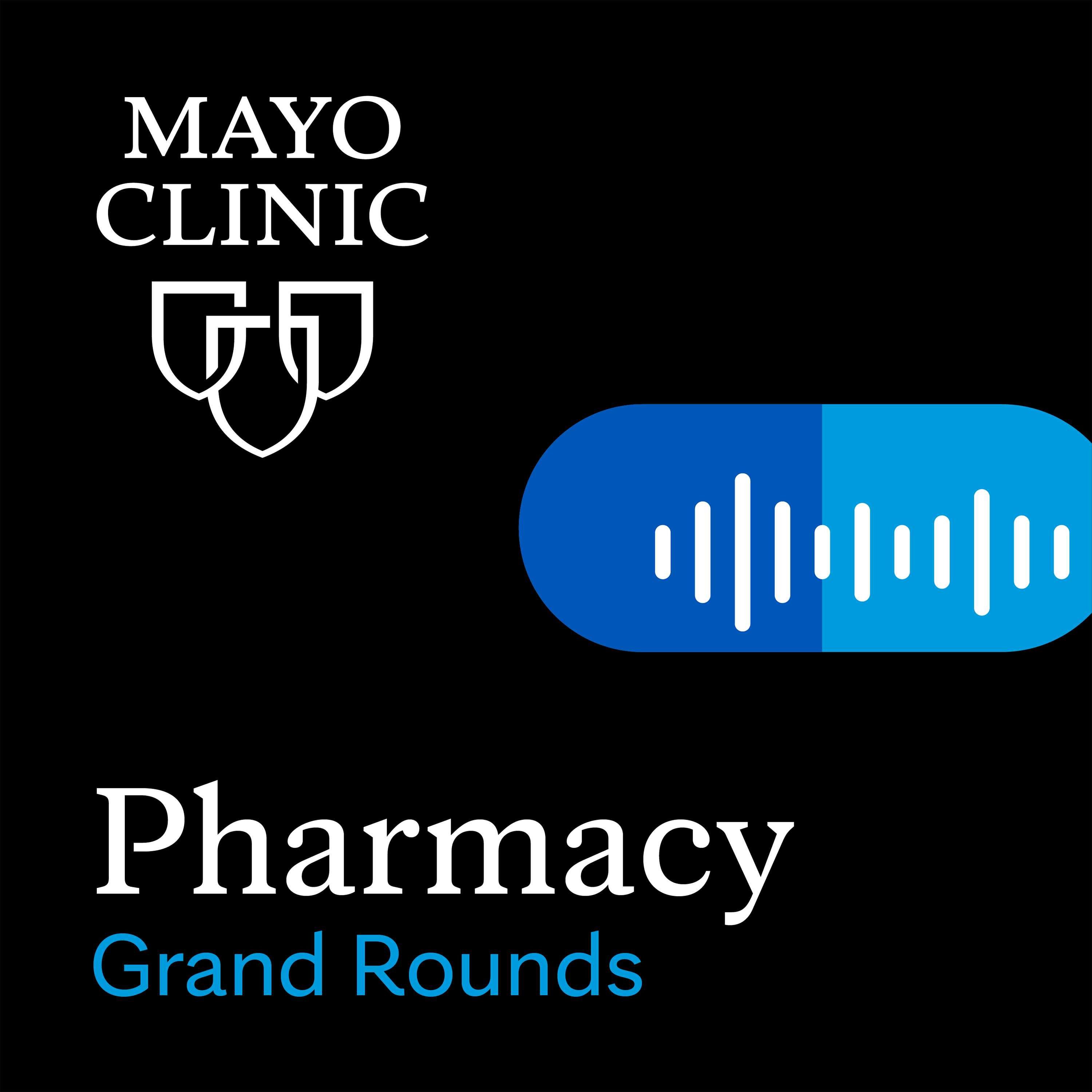
Mayo Clinic Pharmacy Grand RoundsIt’s in the Genes: Identification and Treatment of ESBL-ESarah A. Chase, PharmD identifies the most common ESBL-producing bacteria and common ESBL resistance genes, recognizes the use and limitations in using phenotypic and genotypic data to identify potential ESBL-E organisms and discusses clinical trial data and IDSA guidance to assist in the selection of appropriate antimicrobials for the treatment of ESBL-E infections .
For more pharmacy content, follow Mayo Clinic Pharmacy Residency Programs @MayoPharmRes or the host, Garrett E. Schramm, Pharm.D., @garrett_schramm on Twitter!
You can also connect with the Mayo Clinic’s School of Continuous Professional Development online at https://ce.mayo.edu/ or...
2022-12-1431 min
Infectious Disease PuscastInfectious Disease PuscastOn episode #13 of the Infectious Disease Puscast, Daniel and Sara review the infectious disease literature for the previous two weeks, 9/29/22 – 10/12/22. Hosts: Daniel Griffin and Sara Dong Subscribe (free): Apple Podcasts, Google Podcasts, RSS, email Become a patron of Puscast! Links for this episode Efficacy and safety of switching to Dolutegravir/Lamivudine versus continuing Tenofovir Alafenamide (CID) Antibiotic combinations reduce Staphylococcus aureus clearance (Nature) Cholera Vaccine: Recommendations of the advisory committee on immunization practices (CDC) Detection of Treponema pallidum DNA during early syphilis stages (CID) Association between toxoplasmosis and bipolar disorder (Journal of Psychi...
2022-10-1729 min
InfectEd: der Antibiotika-Podcast#15 A - Es brennt!Harnwegsinfektionen im Krankenhaus - Einteilung und Diagnostik mit PD Dr. Uta Kunter
Diesmal geht es um Harnwegsinfektionen, vor allem um die mit komplizierenden Faktoren. Harnwegsinfektionen sind ein sehr weites Feld und da die Folge entsprechend lang geworden ist, haben wir diesmal 2 Teile daraus gemacht: A - Diagnostik und B - Therapie.
WICHTIG! WICHTIG! WICHTIG!
Wir sind ein universitäres Projekt und brauchen Dein Feedback!
Bitte nimm Dir doch noch 5 Minuten Zeit für unseren [anonymen Fragebogen zur Folge]. **Diesmal gern auch erst, wenn Du Teil A und B gehört hast! **(https://survey-hygiene.charite.de/index.php?r=s...
2022-09-201h 14
ID:IOTS - Infectious Disease Insight Of Two Specialists27. MurDeRing MDR Gram negs. Part 1: AmpC&ESBLJoin Jame as he talks through the ESCMID and IDSA treatment of Multi Drug Resistant Gram negative guidelines/guidance. Callum listens and occasionally asks a question! Jame is so passionate on this subject that we have split the episode into two parts.ECDC guidelines· https://onlinelibrary.wiley.com/doi/full/10.1111/j.1469-0691.2011.03570.x· https://www.ecdc.europa.eu/en/news-events/multidrug-resistant-extensively-drug-resistant-and-pandrug-resistant-bacteria-0 Canadian guidelines· https://www.canada.ca/content/dam/phac-aspc/documents/services/reports-publications/canada-communicable-disease-report-ccdr/monthly-issue/2018-44/ccdr-volume-44-1-january-4-2018/ccdr-rmtc-44-1-ar07-eng.pdf IDSA- https://ww...
2022-08-0844 min
ID:IOTS - Infectious Disease Insight Of Two Specialists24. Ambl(er)ing through beta lactamasesJoin Jame and Callum as they discussion all things beta lactamase including ESBL, AmpC and Carbapenemases. We talk through classification systems, patterns of resistance and some methods of detection. Some resources we found helpful:Summary of beta lactamase classification:https://microbeonline.com/betalactamase-classification/Summary of AmpC:https://www.idstewardship.com/heck-yes-get-amped-updates-ampc-harboring-bacteria/EUCAST detection of resistance:https://www.eucast.org/fileadmin/src/media/PDFs/EUCAST_files/Resistance_mechanisms/EUCAST_detection_of_resistance_mechanisms_170711.pdfUK SMI on Carbapenemases:https://assets.publishing.service.gov.uk/government/uploads/sy...
2022-06-241h 05
InfectEd: der Antibiotika-Podcast#8 - PAPperlapappPerioperative Antibiotikaprophylaxe mit Professor Christian Eckmann
Die perioperative Antibiotikaprophylaxe (PAP) ist unter Antibiotic Stewardship-Gesichtspunkten ein sehr relevantes Thema, denn sie ist – richtig eingesetzt – ein wichtiger Bestandteil der Prävention postoperativer Wundinfektionen. Weniger klug angewandt kann sie aber zu vielen unnötigen Antibiotikagaben führen, die potentiell mehr Schaden als Nutzen bewirken.
WICHTIG! WICHTIG! WICHTIG!
Wir sind ein universitäres Projekt und brauchen Dein Feedback!
Bitte nimm Dir zum Schluss doch noch 5 Minuten Zeit für unseren anonymen Fragebogen.
Hier findest Du Infos zu unserem Experten Prof. Dr. med. Christian Eckmann.
Weiterführende Links zu Themen...
2022-05-311h 11
みんなで予防!感染症ワンポイントアドバイスみんなで予防!感染症ワンポイントアドバイス(2022.4.4放送分)第434回 シリーズ「薬剤耐性菌について」ESBLについて出演:菅井 基行(国立感染症研究所 薬剤耐性研究センター長)番組HPはこちら↓http://www.radionikkei.jp/kansenyobo/#感染症 #薬剤耐性菌 See omnystudio.com/listener for privacy information.
2022-05-1205 min
BreakpointsA Conversation with the Authors of IDSA Guidance on Treatment of AmpC, CRAB, and StenotrophomonasDrs. Pranita Tamma (@pranita_tamma) and Sam Aitken (@OncIDPharmd) are BACK on the podcast this week with Dr. Erin McCreary (@ErinMcCreary) to discuss IDSA guidance on AmpC producers, carbapenem-resistant Acinetobacter baumanii, and Stenotrophomonas as part of our series on gram-negative bacteria. Listen as the panelists navigate the hot mess that is the CRAB treatment landscape, have a minocycline appreciation moment (we stan for Steno Sam!), and throw down some bar trivia in an "I Feel Nerdy" segment that you don't want to miss.
Learn more about the Society of Infectious Diseases Pharmacists: https://sidp.org/About
Twitter: @S...
2022-01-281h 13
BreakpointsA Conversation with the Authors of IDSA Guidance on Treatment of ESBL, CRE, and DTR PseudomonasDrs. Pranita Tamma (@pranita_tamma) and Sam Aitken (@OncIDPharmd), authors of the IDSA Guidance on gram-negative resistance, join Dr. Erin McCreary (@ErinMcCreary) for this exquisitely good episode to discuss the soon-to-be-updated guidance on treatment of ESBL producers, CRE producers, and difficult to treat (DTR) Pseudomonas.
Learn more about the Society of Infectious Diseases Pharmacists:
Website: https://sidp.org/About
Twitter: @SIDPharm (https://twitter.com/SIDPharm)
Instagram: @SIDPharm (https://www.instagram.com/sidpharm/)
Facebook: https://www.facebook.com/sidprx
LinkedIn: https://www.linkedin.com/company/sidp/
References:
PRO: Testing for ESBL production is necessary for ce...
2022-01-211h 15
#BiggzlifeESBL PLAYOFFSThe best basketball sim league playoff bout to start get hype--- This episode is sponsored by · Anchor: The easiest way to make a podcast. https://anchor.fm/appSupport this podcast: https://anchor.fm/biggzlife/support
2021-12-2212 min
DASON DigestOptimizing Treatment for ESBL-Producing PathogensEpisode Notes
This episode features Dr. Elizabeth Dodds Ashley and Dr. Shaefer Spires. The article discussed in this podcast is available here: https://doi.org/10.1093/cid/ciaa1479.
For more information about the Duke Antimicrobial Stewardship Outreach Network (DASON), please visit: https://dason.medicine.duke.edu.
2021-12-0917 min
PODCAST DE LA ESBL l TÍO WALLACE PRESENTA.LA ÉPOCA DORADA DEL COMPETITIVO EN BATTLEFIELD FT [BPr] ARAIIZA EPISODIO FINAL #22En esta ocasión tuvimos la oportunidad de hablar con uno de los mejores jugadores mexicanos de la escena competitiva (para muchos el mejor), hablamos de su historia en los videojuegos, como vivió la época dorada del competitivo era dorada porque había muchisimos equipos y muchos jugadores buscando ponerse a prueba y porque los juegos se hacian con amor, fue el primer lider que consiguió hacer una Selección Mexicana de Battlefield con los mejores jugadores de la época y que le podia competir y someter a cualquier equipo del mundo, nos cuenta como consiguió ese gran logro convenci...
2021-11-262h 05
PODCAST DE LA ESBL l TÍO WALLACE PRESENTA.NOS FUIMOS POR LA PUERTA GRANDE FT vRx_Edmay020 #21En esta ocasión tuvimos la oportunidad tuvimos la oportunidad de hablar con el lider fundador de (vRx) uno de los mejores equipos de la escena competitiva de PS, una historia llena de buenos momentos y con un final que ni al mejor escritor se le hubiera ocurrido, es un gran episodio que no te puedes perder, te dejo el canal de vRx_Edmay020 por si quieres revivir los duelos que jugaron. https://www.youtube.com/watch?v=5blPfuWx2fY
Servidor Discord de la ESBL: https://discord.gg/FW9mUw3p
“Too small to be a war...
2021-11-241h 53
PODCAST DE LA ESBL l TÍO WALLACE PRESENTA.EL EQUIPO QUE LLEVA 10 AÑOS EN LA ESCENA COMPETITIVA DE BATTLEFIELD 101 FT ALDO CH14 #20En esta ocasión tuvimos la oportunidad de platicar con el lider fundador de la 101, nos cuenta como llego a ser el clan mas grande de la escena y su incursión en el competitivo siendo uno de los primeros en organizar torneos y sentar las bases para la ESBL, una platica con mucha nostalgia sin lugar a dudas recordar es volver a vivir.
Servidor Discord de la ESBL: https://discord.gg/FW9mUw3p
“Too small to be a war, too good to be a game”
2021-11-221h 39
PODCAST DE LA ESBL l TÍO WALLACE PRESENTA.EL QUE NO CONOCE A DIOS A CUALQUIER SANTO LE REZA FT ELJUUBI #19En este episodio tuvimos la oportunidad de platicar con el mejor jugador de Xbox en BF4, es un personaje bastante controversial dentro de la escena con un fandom muy tóxico pero tambien tiene muchisimos retractores dentro de la comunidad, en este episodio nos cuenta el trabajo que realizó para ser el numero y como se empezo a ganar el respeto y odio de muchos, definitivamente es un gran episodio que no te puedes perder.
Servidor Discord de la ESBL: https://discord.gg/FW9mUw3p
CONTACTO DE ELJUUBI: twitch.tv/eljuubi
“Too small to...
2021-11-191h 46
PODCAST DE LA ESBL l TÍO WALLACE PRESENTA.SOMOS EL EQUIPO #1 DE LA ESCENA INTERNACIONAL COMPETITIVA FT 2eZy_chain #18En esta ocasión tuvimos la oportunidad de platicar con el líder del caln #1 de PS, pudimos platicar de su historia en el competitivo dentro de los mejores clanes y las mejores organizaciones dentro de la escena hasta llegar a conformar su propio equipo, hablamos de las principales rivalidades y como las organizaciones llegaron a perder su credibilidad por las malas de decisiones, ITS TOO EASY BROO Esports es el mejor equipo competitivo que domina la escena internacional desde Battlefield 4, este es un gran episodio no se lo pueden perder.
Servidor Discord de la ESBL: https://disc...
2021-11-172h 01
PODCAST DE LA ESBL l TÍO WALLACE PRESENTA.STYLE EL MEJOR EQUIPO COMPETITIVO DE XBOX FT STYLE ENRIQUE #17En este episodio tuvimos la oportunidad de hablar con Style Enrique el lider del mejor equipo competitivo de xbox, nos cuenta como fue evolucionando hasta llegar a ser uno de los equipos que dominaron las escena hasta su retiro de la saga de BF, nos cuenta de los exitos obtenidos lo frustrante que es ser el #1 y que no querian jugar contra ellos.
Servidor Discord de la ESBL: https://discord.gg/FW9mUw3p
“Too small to be a war, too good to be a game”
2021-11-162h 01
PODCAST DE LA ESBL l TÍO WALLACE PRESENTA.EL PROBLEMA ES QUE NO CREEMOS EN NOSOTROS FT ProNation__SinZ - jrangel78 segunda parte #16En este episodio tuvimos nuevamente la oportunidad de platicar con La Leyenda Mexicana, hablamos de los equipos TOPs de Xbox que en su busqueda de nivel se fueron a encontrar en PS con ellos superandolos ampliamente, hablamos tambien del competitivo y como poder ofrecer realmente un reto a los jugadores que quiran ponerse a prueba, del racismo en los videojuegos, en los torneos de Norte America les llamaban simios y como respondieron a esos insultos, un gran episodio que sin duda busca ampliar el panorama.
TWITCH DE LA LEYENDA MEXICANA JRANGEL78: https://www.twitch.tv/pronation__sinz ...
2021-11-121h 35
PODCAST DE LA ESBL l TÍO WALLACE PRESENTA.ES UN MITO QUE PC TIENEN UNA VENTAJA SOBRE LOS JUGADORES DE CONSOLA FT HUNI #15En esta ocasión tuvimos la oportunidad de platicar con Huni un jugador con el cual ESBL tuvo diferencias, nos cuenta su historia de como empezo en la saga de Battlefield y sus primeros pasos en la escena competitiva, nos habla de su experiencia como jugador buscando mejorar para ser mejor, hablamos de la toxicidad de la banda y como entendio que no era necesario ser un personaje en internet, la historia detras del nombre Style Huni, hablamos de los mitos que hay entorno a la superioridad de PC sobre las consolas.
Servidor Discord: https://discord.gg/FW9...
2021-11-101h 46
PODCAST DE LA ESBL l TÍO WALLACE PRESENTA.HABLANDO CON EL MEJOR JUGADOR COMPETITIVO DE PLAYSTATION FT ProNation__SinZ - jrangel78En este episodio tuvimos la oportunidad de hablar con uno de los mejores jugadores de PLAYSTATION, nos cuenta sus inicios en los videojuegos, como se preparo para ser uno de los mejores en la escena competitiva de PS, nos cuenta como se cruzan las historias de xbox y PS con los mejores jugadores de cada una de las plataformas y como los jugadores PS superaron a los mejores jugadores de xbox, hablamos del declibe de PS por la falta de organización dentro de la comunidad, este es uno de los mejores episodios con LA LEYENDA MEXICANA.
“Too s...
2021-11-081h 57
PODCAST DE LA ESBL l TÍO WALLACE PRESENTA.LA IDEA ES GANAR BATTLEFIELD NATIONS FT LADYMEDIC #13En este episodio tuvimos la oportunidad de platicar con la embajadora de Battlefield Nations, nos cuenta como llego a la saga de BF, el primer clan en el que participo, como consiguió transfomar un equipo casual y llevarlo a competir, hablamos de lo que hace internacionalmente la comunidad de BF para construir un competitivo en condiciones, platicamos de como hacer el mejor equipo Mexicano.
“Too small to be a war, too good to be a game”
2021-11-051h 04
PODCAST DE LA ESBL l TÍO WALLACE PRESENTA.ESTE ES EL ÚNICO ERROR QUE HICE COMO LIDER FT MELLEn este episodio tenemos un gran invitado el lider de v4, pudimos platicar de como se formo su equipo, se toco el tema de la falta de honestidad dentro de la comunidad, como cambio de ser uno de los lideres mas neutrales a llegar a ser de los tóxicos, llegamos a la conclusiónde cual fue el momento en que la prioridad paso de competir a solo farolear por redes sociales, nos cuenta como y por que hizo trampa en en un torneo.
“Too small to be a war, too good to be a game”
2021-11-031h 51
PODCAST DE LA ESBL l TÍO WALLACE PRESENTA.HICIMOS LO QUE TENIAMOS QUE HACER PARA GANAR FT RG KARMICONWOKEEn este episodio hablamos con un gran invitado donde pudimos platicar de configuraciones para se mejor jugador, los diferentes juegos en los que ha participado, el diseño de una estrategia para ganar el primer torneo de Battelfield V, aqui no hay amigos estamos compitiendo.
“Too small to be a war, too good to be a game”
2021-11-011h 25
PODCAST DE LA ESBL l TÍO WALLACE PRESENTA.A MI ME DECIAN QUE NO CONFIARA EN EL FT CHIHUAS #10En este episodio hablamos con el lider de Arte de Guerra, Nos cuenta sus inicios en la saga, las rivalidades que que ha cosechado durante este tiempo, las derrotas que marcaron su carrera en el competitivo, las diferencias que existian con la ESBL al tomar decisiones o dejar de tomar en pro de los equipos,las traiciones de los que consieras tus amigos.
“Too small to be a war, too good to be a game”
2021-10-292h 00
BreakpointsA Nefarious Orchestra: Gram-Negative Resistance Mechanisms Part 2From generating 150 liters-worth of E. coli to the first X-ray crystallography of an ESBL, Drs. Robert Bonomo, Ryan Shields (@ryankshields), and Erin McCreary (@ErinMcCreary) take a deep dive into beta-lactamases like AmpCs, KPCs, and more.
2021-10-2900 min
PODCAST DE LA ESBL l TÍO WALLACE PRESENTA.ESTA ES LA GUERRA QUE ME TOCO PELEAR FT JAMESDELTA #9En este episodio traemos de invitado a un gran amigo que compitio conmigo en el SNA, platicamos de su carrera profesional como Neurólogo, nos explica el camino para ser un Médico Especialista, nos platica el año tan difícil que le ha tocado vivir a todo el personal de salud, es un episodio diferente pero vale la mucho la cada minuto.
“Too small to be a war, too good to be a game”
2021-10-271h 06
PODCAST DE LA ESBL l TÍO WALLACE PRESENTA.LAS ENVIDIAS NOS DIVIDIERON #GOEKO FT GUNTAVO #8En este episodio hablamos de los primeros torneos en Battlefield, los jugadores que levantaron a los equipos, hablamos de viejas rencillas, los jugadores que pasaron por EKO y el camino para llegar a tener su epoca dorada en Battlefield siendo el equipo mas fuerte en ese momento.
“Too small to be a war, too good to be a game”
Síguenos en nuestras redes sociales:
@mathiicarballo @sna_wallace @chuy_gt36 @Jeizusoficial https://twitter.com/EsblOficial https://www.instagram.com/esbl_Oficial https://www.twitch.tv/esbl https://www.facebook.com/e.sportbl/ https://twitter.c...
2021-10-251h 09
PODCAST DE LA ESBL l TÍO WALLACE PRESENTA.ELLOS CONTRATARON JUGADORES PARA GANAR FT EUPHORIA #7En este episodio hablamos de los inicio de Euphoria en el competitivo, la decepción de ser baneados de la ESBL y nos da una perspectiva como jugador de las novelas.
“Too small to be a war, too good to be a game”
Síguenos en nuestras redes sociales: @mathiicarballo @sna_wallace @chuy_gt36 @Jeizusoficial https://twitter.com/EsblOficial https://www.instagram.com/esbl_Oficial https://www.twitch.tv/esbl https://www.facebook.com/e.sportbl/ https://twitter.com/chuygt36?s=08. . . . . #ESBL #Battlefield #Battlefield2042 #BattlefieldV #Battlefield1 #Xbox #Ps #PC
2021-10-221h 24
PODCAST DE LA ESBL l TÍO WALLACE PRESENTA.LA REFLEXIÓN CON EL TÍO WALLACEEn este episodio platico sin invitado las enseñanzas que nos han dejado estos episodios.
No olvides dejar tu reacción, comentario y nos ayuda mucho que lo compartas.
“Too small to be a war, too good to be a game” Síguenos en nuestras redes
sociales: @mathiicarballo @sna_wallace @chuy_gt36 @Jeizusoficial https://twitter.com/EsblOficial https://www.instagram.com/esbl_Oficial https://www.twitch.tv/esbl https://www.facebook.com/e.sportbl/ https://twitter.com/chuygt36?s=08. . . . . #ESBL #Battlefield #Battlefield2042 #BattlefieldV #Battlefield1 #Xbox #Ps #PC
2021-10-2155 min
PODCAST DE LA ESBL l TÍO WALLACE PRESENTA.LAS DOS NOVELAS MÁS GRANDES EN LA ESBL FT MECANINMAN #6En este episodio hablamos de la llegada de Meca a la ESBL, la rivalidad mas grande de su equipo, el ataque de la comunidad a sus comentarios, lo que dejamos por estar aqui, los peores momentos en la ESBL. No olvides dejar tu reacción, comentario y nos ayuda mucho que lo compartas. “Too small to be a war, too good to be a game”
2021-10-181h 27
PODCAST DE LA ESBL l TÍO WALLACE PRESENTA.EN LA 101 HAN PASADO JUGADORES PROFESIONALES Y CAMPEONES OLIMPICOS FT 101S PANTAROV #5En este episodio hablamos de como se gesto la escena competitiva de Bad Company 2, los primeros pasos y las primeras rivalidades, el jugador que salio de 101s y encontro una carrera como jugador profesional, los torneos que se hacian en BF3, nace la FMB y los primeros torneos, gente tóxica.
“Too small to be a war, too good to be a game”
2021-10-181h 24
PODCAST DE LA ESBL l TÍO WALLACE PRESENTA.ESTA ES LA IDEA QUE REVOLUCIONARA EL COMPETITIVO EN BATTLEFIELD FT Hey MIZzA #4En este episodio platicamos de como empezamos a competir, rivalidades en la comunidad que se arreglan 1vs1, como mejorar tu juego, la diferencia entre mod y hack, las novelas son necesarias?, que le falta a Battlefield para se competitivo, nosotros no somos el target para los desarrolladores.
“Too small to be a war, too good to be a game”
2021-10-181h 09
PODCAST DE LA ESBL l TÍO WALLACE PRESENTA.CUANDO EXISTEN JUGADORES DESHONESTOS HECHAN A PERDER LIGAS Y EQUIPOS @RAMMZTEIN57 #3En este episodio hablamos con uno de los caster pioneros de battlefield que ha logrado una gran reputación en R6, hablamos de los inicios en las transmisiones de BF, como dio el paso a ser comentarista, torneos con premios?, el premio al mejor comentarista de la comunidad, los Esports son el futuro?, estamos dejando un granito de arena en la escena. Rammztein57
“Too small to be a war, too good to be a game”
2021-10-181h 03
PODCAST DE LA ESBL l TÍO WALLACE PRESENTA.DEJE MI CLAN ENCARGADO Y SE LLEVARON A MIS JUGADORES FT AIRCLON LIDER DE KOH. #2En este episodio hablamos de los incios en los videojuegos, el camino a ser uno de los mejores equipos de México, perder a tu equipo y volver de cero, el nivel competitivo, podemos ser potencia?, lo que porvoca la ESBL en la escena. “Too small to be a war, too good to be a game”
2021-10-181h 17
PODCAST DE LA ESBL l TÍO WALLACE PRESENTA.BATTLEFIELD 2042 SERÁ EL JUEGO DEL AÑO FT DEADPOOLUY #1En este episodio hablamos de los inicios en la vida de DP, como lo acompañaron los videojuegos, metas, ambiciones, somos lo qu queriamos ser, a donde va la ESBL.
Espero lo disfruten si es asi deja tu comentario, like y compartir.
2021-10-181h 04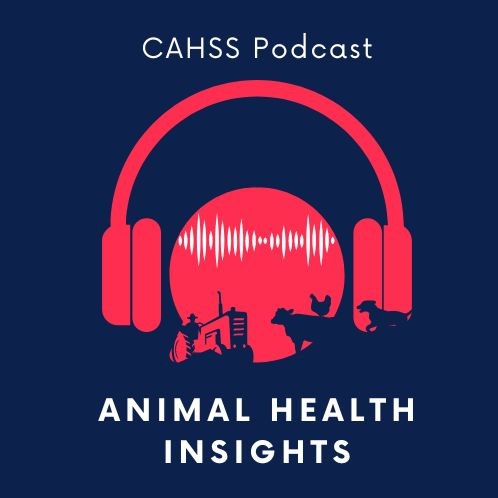
CAHSS Podcast Series - Animal Health InsightsRacing against Resistance with Dr. Maud de Lagarde: Animal Health Insights, Ep. 8, Aug. 7, 2021We're all racing neck and neck against antimicrobial resistance - trying to preserve antibiotics for use in the most critical situations. This equine specialist pinpoints actions horse owners and veterinarians can take to minimize spread of resistant pathogens in horse populations and facilities.
With fewer anti-microbials in our equine veterinary toolkit, it is essential that we learn all we can about how antimicrobial resistant pathogens travel between horses and their handlers. Without being able to identify and track antibiotic resistant bacteria, we are left in the dark when we try to adjust our management of our animals...
2021-08-0717 min
CAHSS Podcast Series - Animal Health InsightsDevancer la résistance avec Dre Maud de Lagarde: Perspectives en santé animale, Ep. 8, 7 août 2021Nous sommes tous engagés dans une course contre la résistance aux antibiotiques et nous essayons de préserver l’efficacité de ces médicaments pour pouvoir continuer à les utiliser dans les situations les plus critiques. Cette spécialiste en médecine équine propose aux propriétaires de chevaux et aux vétérinaires équins des mesures qui peuvent être utilisées pour réduire la propagation de bactéries pathogènes résistantes au sein de la population équine et dans les écuries.
Étant donné la réduction du nombre d’antibiotiques disponibles dans la trousse médicale des vétérin...
2021-08-0718 min
JournalFeed PodcastScribe Meta-analysis | PCN Allergy Swaps | Post-LP HA | ESBL, CRE, DTR-P | HEART Score WoesIt’s the JournalFeed Podcast for the week of Jun 21-25, 2021. We cover the benefit of scribes, choosing alternative antibiotics in penicillin allergic patients, how to prevent post-LP headache, treating highly resistant gram-negatives, and more problems with the HEART score.
2021-06-2600 min
CME.baLiječenje kompliciranih infekcija kože i mekih tkivaPošaljite nam SMS poruku.NAMIJENJENO ISKLJUČIVO ZDRAVSTVENIM DJELATNICIMA. PRISTUPOM PODCASTU POTVRĐUJETE DA STE ZDRAVSTVENI DJELATNIK.PREDAVAČ:Prof.dr.sc. RUSMIR BALJIĆ, dr.med.specijalista infektologijeKlinika za infektivne bolestiKCU SarajevoSarajevo, BiHLINK NA TEČAJPristupom na CME aktivnost na Portalu CME.ba imate priliku da na kraju iste uradite završni test, te da dobijete akreditovani CME certifikat.Većina infekcija kože i kožnih struktura je nekomplicirana. Međutim komplicirane infekcije kože su popraćene...
2021-06-1224 min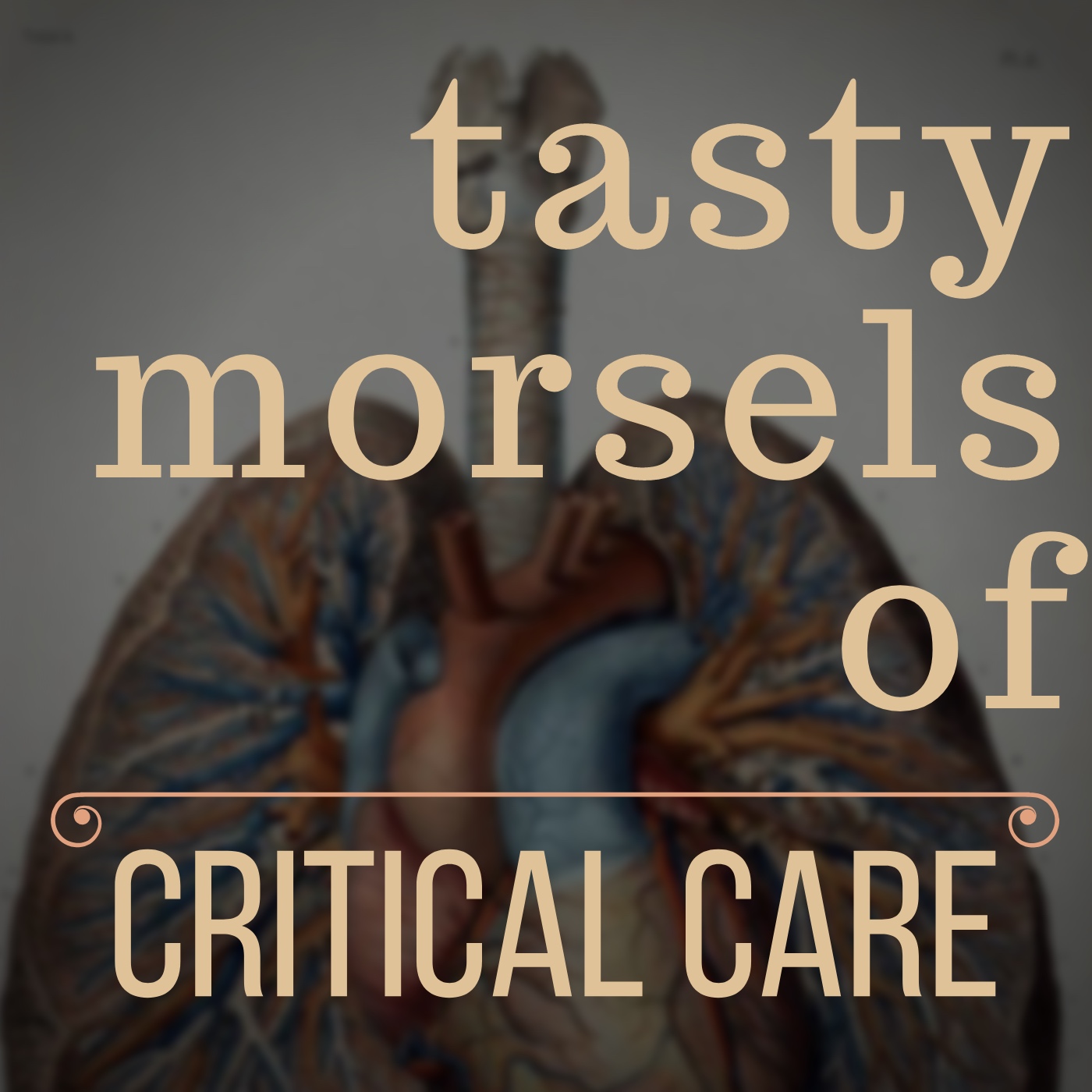
Emergency Medicine IrelandTasty Morsels of Critical Care 024 | The aminoglycosidesWelcome back to the tasty morsels of critical care podcast. A meandering monologue through critical care exam preparation.
The aminoglycosides see themselves as a bit special. Not content with producing deafness and killing kidneys they’ve also demanded awkward dosing schedules, a need for regular levels and even their own section on most drug kardexes that I’ve seen. They are the divas of the antibiotic world.
That being said they’re a real work horse in the ICU and it’s hard to say you’ve done due diligence on a septic crashing patient without th...
2021-02-0104 min
Emergency Medicine IrelandTasty Morsels of Critical Care 019 | Liver Transplant Part 2Welcome back to the tasty morsels of critical care podcast.
Welcome back to what I hope will be the final little segment (boom boom) on liver transplant. Part 1 lives here. Though at this stage I certainly can’t rule out an ongoing process somewhat akin to the great Douglas Adams’ increasingly inaccurately named Hitch Hiker’s Guide to the Galaxy trilogy that ended up at 5 parts.
Two things worth knowing about and easily mixed up are
hepatopulmonary syndrome
portopulmonary hypertension
First off hepatopulmonary syndrome. This can be found in ~20% of cirrhotics and the key cl...
2021-01-1403 min
JournalFeed PodcastAntibiotic Nasal Pack | Type L ARDS | Long v Ultralong US IV | ESBL UTI | HaVOC Cannabis HyperemesisIt’s the JournalFeed Podcast for the week of Dec 14-18, 2020. We cover antibiotics for nasal packing, the myth of “Type L” COVID-19 ARDS phenotype, long vs ultralong ultrasound-guided IVs, the rise of ESBL UTIs in the ED, and the HaVOC RCT on haloperidol vs ondansetron for cannabis hyperemesis.
2020-12-1900 min
Persiflagers Infectious Disease PuscastPuscast: Nov 15 - 30, 2020.Nov 15 - 30, 2020. COVID stuff. HAFF a disease is better than none? UTI with ESBL. Magic. And more.
2020-12-0133 min
USF Health’s IDPodcastsNew Antimicrobials for Multidrug Resistant OrganismsDr. Bachmeier presents an up-to-date review of newer-generation antimicrobials designed to be effective against infections with multiple drug-resistant pathogens. He first reviews the different types of extended-spectrum beta-lactamase (ESBL) resistance. He then discusses the significance of Carbapenemase-producing enterobacteriaceae and ESBL producing E coli, Klebsiella pneumonia, and Pseudomonas aeruginosa strains. Such organisms have become increased threats to our patients over the last two decades while new drug approvals have dwindled. Dr. Bachmeier reviews Ceftolozane-tazobactam, Ceftazidime-avibactam and their current indications. He then reviews Meropenem-vaborbactam and its utility in the treatment of Klebsiella pneumonia carbabenemase (KPC) infections. He then discusses imipenem-relebactam and...
2019-10-0144 min
EMGuidewire's PodcastAntibiotics for Sepsis: Sepsis Awareness Month, Episode 3Join the EMGuideWire crew once again for this month's series on Sepsis in honor of Sepsis Awareness month. Episode 3 will cover antibiotic use and selection. Antibiotics for Sepsis Take a history and perform a chart biopsy first! Consider past infections, bug susceptibilities, healthcare acquired vs. community acquired infection, foreign travel, and comorbidities. Always check local antibiogram and prior culture results. Septic shock - Start broad spectrum antibiotics within 1 hour. Stable patient - find the source! UA, CXR, and a good skin exam are fast and can help guide antibiotic choice. Remember some patients need surgical management! An...
2019-09-1612 min
Persiflagers Infectious Disease PuscastPuscast: May 1 to 15, 2019.May 1 to 15, 2019. ESBL's.There's lots of paracocci. Oral ribavirin is cheaper and works for RSV. Do not French kiss a tongue ulcer. Autoimmune HSIV. And more.
2019-05-2022 min
Healthy and Happy Senior LivingHow to Protect Your Kids From Antibiotic Resistant Bacteria at Petting ZoosProtect Your Kids at Petting Zoos From Drug Resistant BacteriaShow Notes:A new study finds petting zoos can be breeding grounds for drug resistant bacteria (MDR) including e coli. These bacteria can place anyone touching animals at risk, particularly young children.This study was done by researchers from Ariel University in Israel. They choose eight petting zoos at random, collecting fecal matter samples and swabs from fur, skin, and feathers from 228 animals representing 42 species. Of particular interest were two bacteria types, extended spectrum beta-lactamase (ESBL) and AmpC-producing Enterobacteriaceae (AmpC-E). These bacteria...
2019-04-2305 min
Persiflagers Infectious Disease PuscastPuscast: November 1 to 15, 2018.Puscast: November 1 to 15, 2018. Infections down. Lyme treatment complications. Clever way to treat ESBL UTI. Ars Technica talks to idjects. And more.
2018-11-1724 min
BuffEM PodcastJuly 2018 PodcastPelvic exams and STIs, Non-operative vs operative management of hip fractures, Tamsulosin for kidney stones, NG tube decompression for SBO, Procedural sedation with one vs two physicians, CXR in everyone with chest pain ? , Fluids and Pediatric DKA, NIPPV + NC, PRISMS trial - alteplase vs aspirin, ESBL UTI, Bicarb in the ICU, Backboards and imaging, SVT and troponin leak, Pediatric pneumonia, Lactate after HD, Tetracaine for corneal abrasions, fixed dose vs weight based PCC, ED Urgent Care transfers, Diplopia in the ED Quick Summary July 2018 Articles
2018-07-2300 min
Persiflagers Infectious Disease PuscastPuscast: July 15 to 31, 2016.Puscast: July 15 to 31, 2016. Hamlet quotes. Staph pneumonia. Infections from eating snake meat. We exist to transport ESBL. Habitual Hyperthermia. And more.
2016-08-0127 minTierärztliche Fakultät - Digitale Hochschulschriften der LMU - Teil 07/07Vorkommen und Bedeutung von Antibiotikaresistenzen und Extended-Spectrum Beta-Lactamasen (ESBL) bei Escherichia coli aus Wildvögeln mit Kontakt zu Menschen aus Südbayern
2015-07-1800 minTierärztliche Fakultät - Digitale Hochschulschriften der LMU - Teil 06/07Untersuchung auf antimikrobielle Resistenzen und Vorkommen von Extended‐Spectrum‐Beta‐Lactamasen bei Shigatoxin‐Gen tragenden Escherichia coliShiga toxin producing E. coli (STEC) can occur either as part of the normal intestinal gut flora or as pathogenic agents in animals and humans causing serious disease in humans. In the present study we determined the frequencies of resistance against 14 different antimicrobial agents of in total 235 STEC isolates from farm cattles, wild ruminants and food products. This susceptibility testing was performed using broth microdilution method. Overall, the most frequent resistances were detected against streptomycin, sulfonamides, and tetracycline. Furthermore, 30 of the 36 resistant isolates detected in this study were multi drug resistant against two or more antimicrobial agents. Another focus of...
2012-07-2100 min